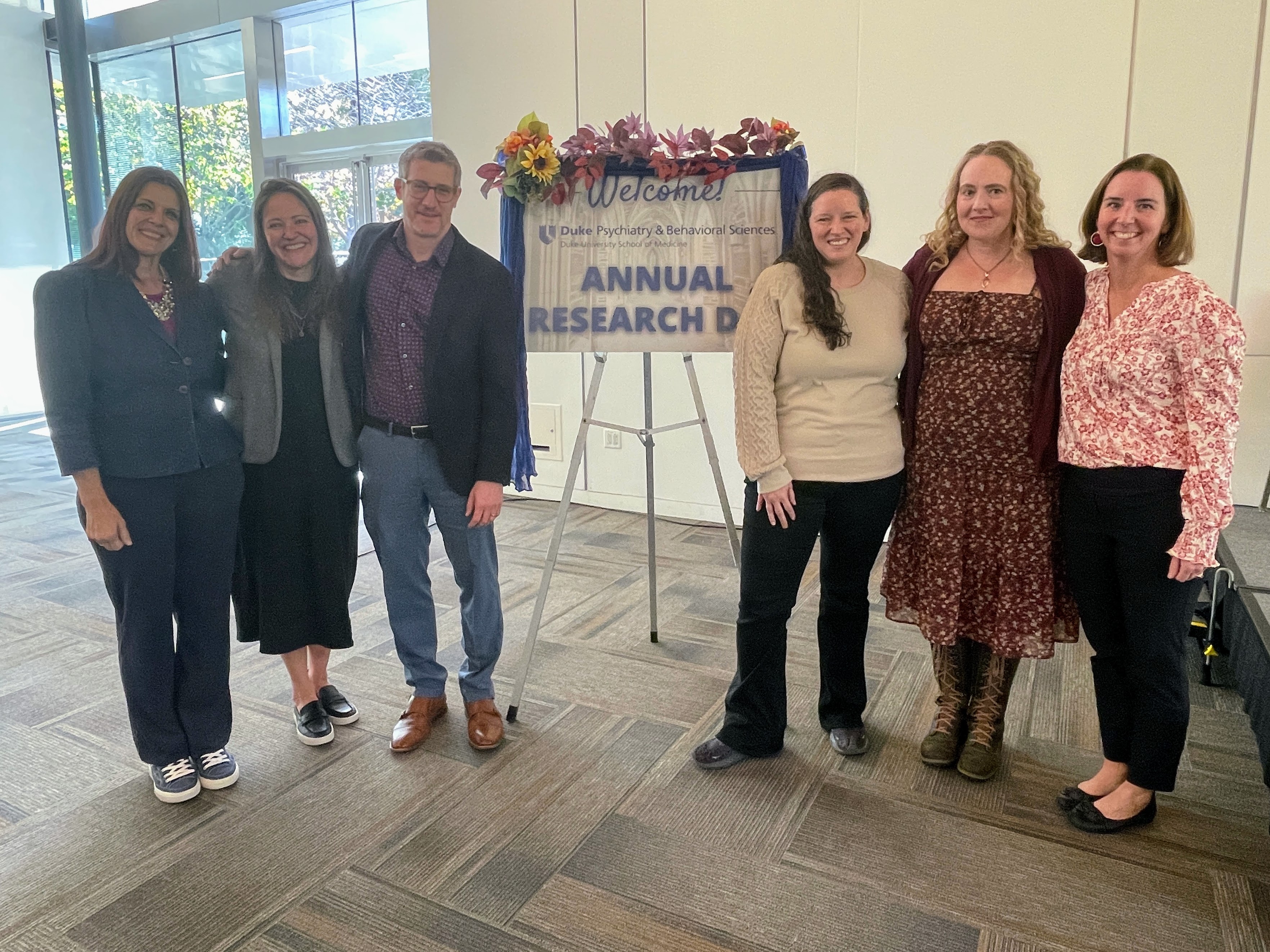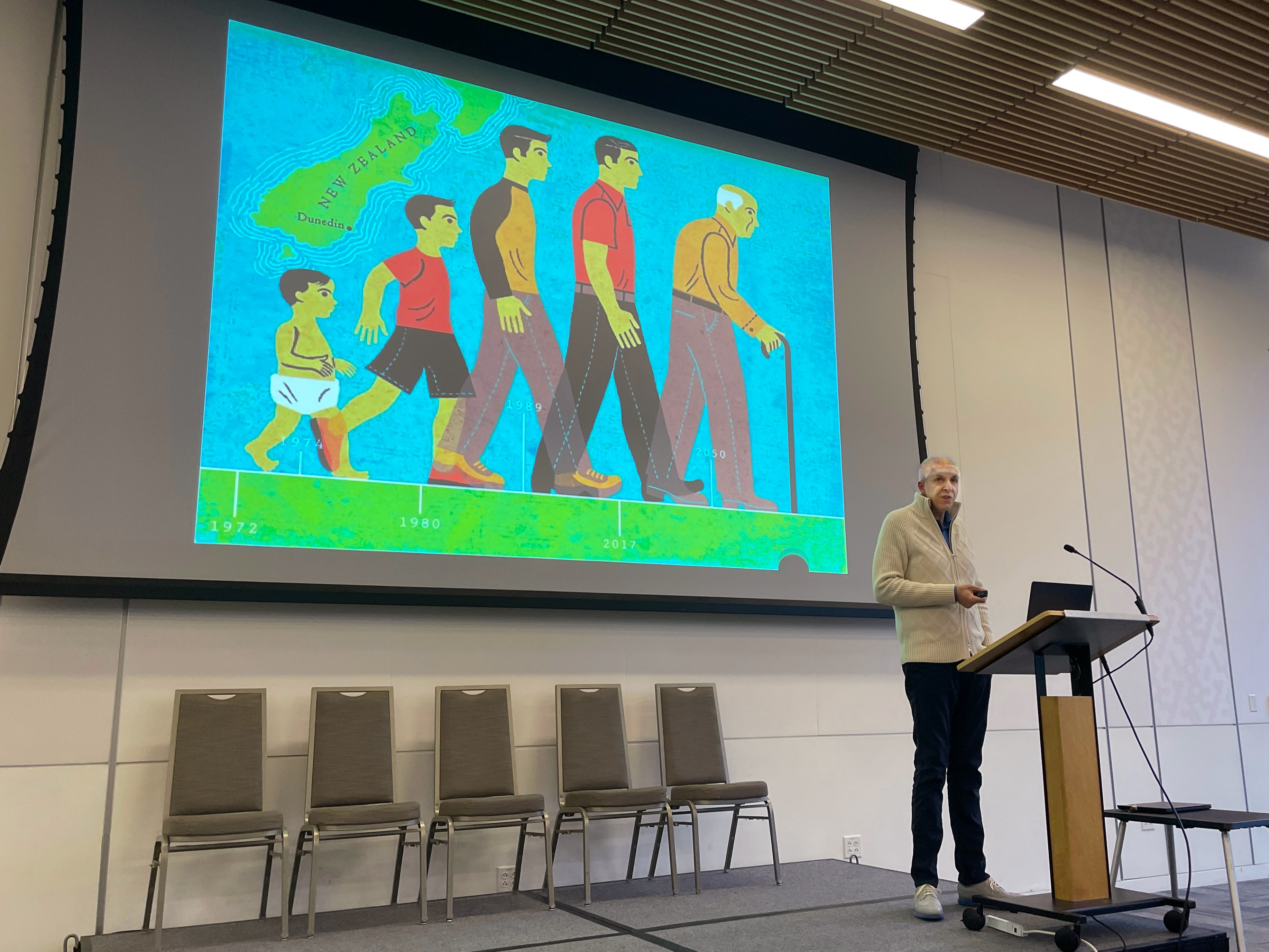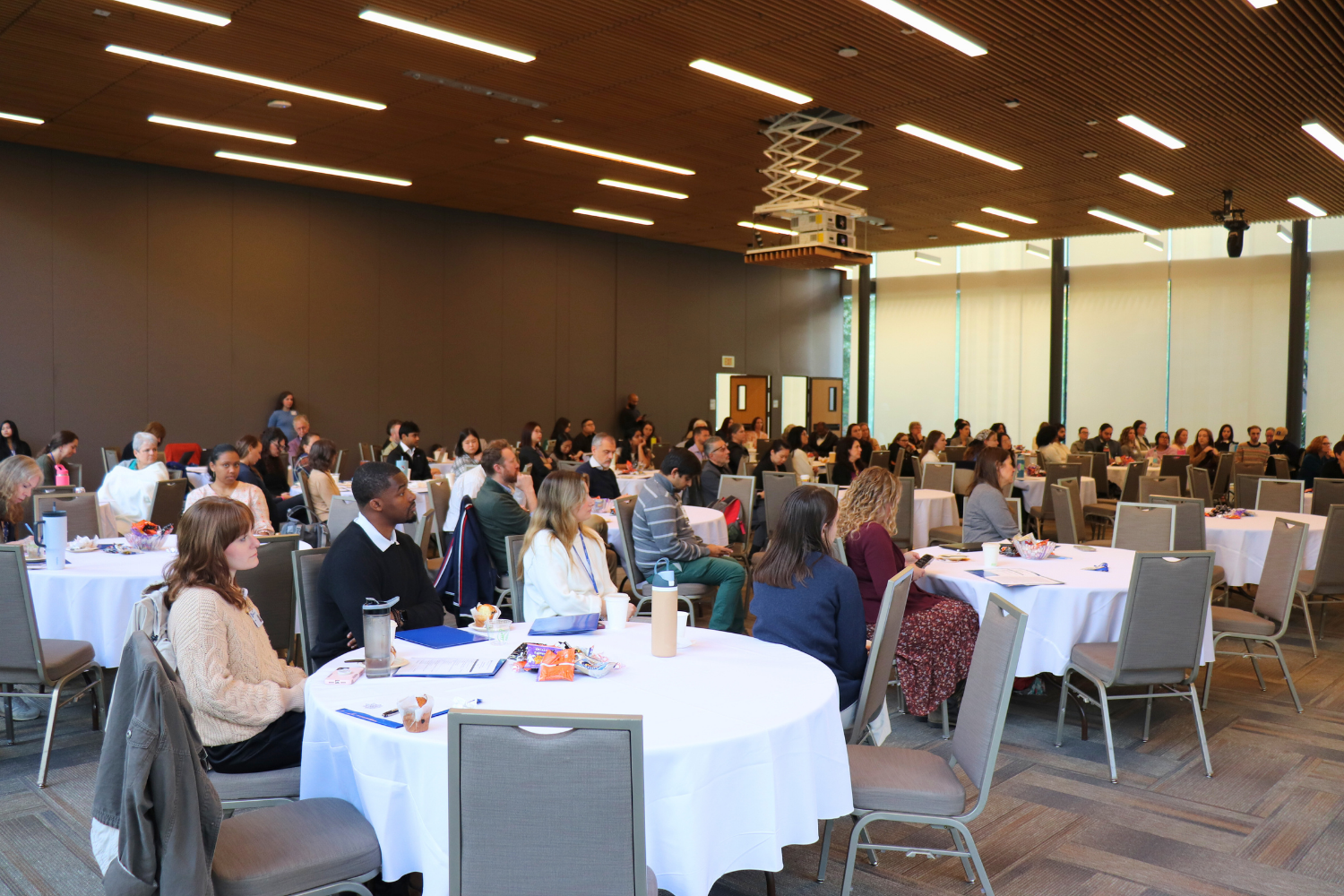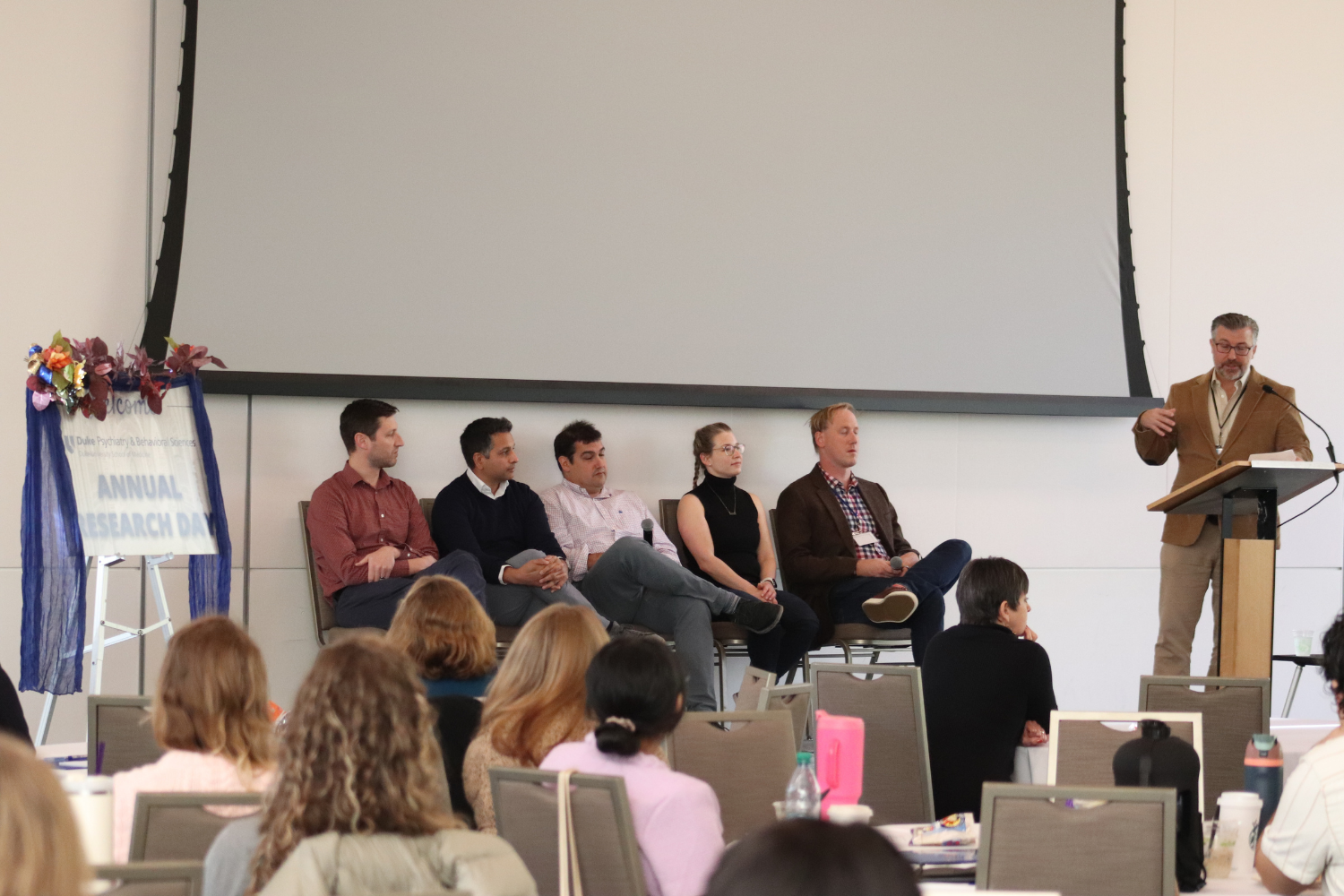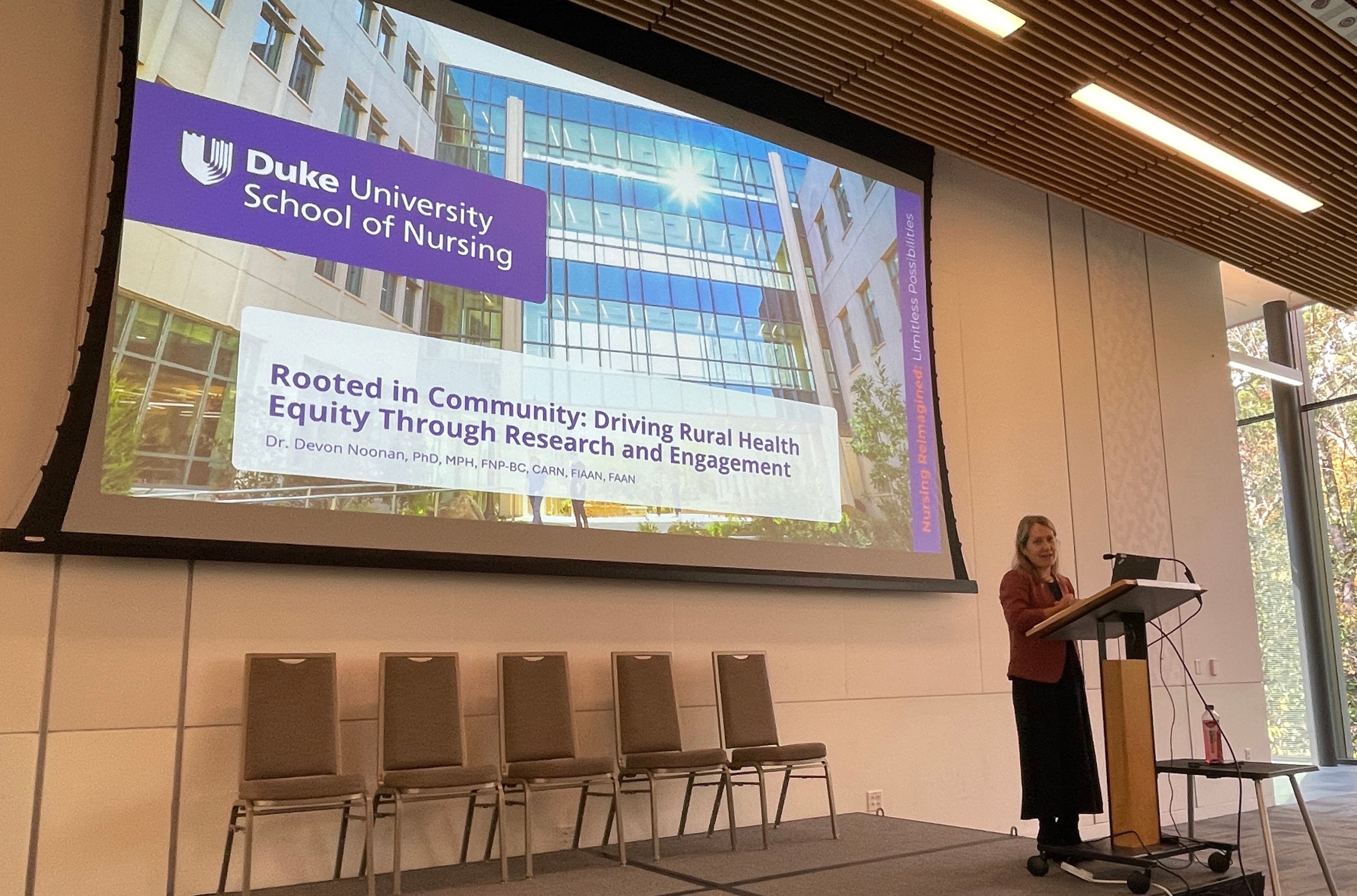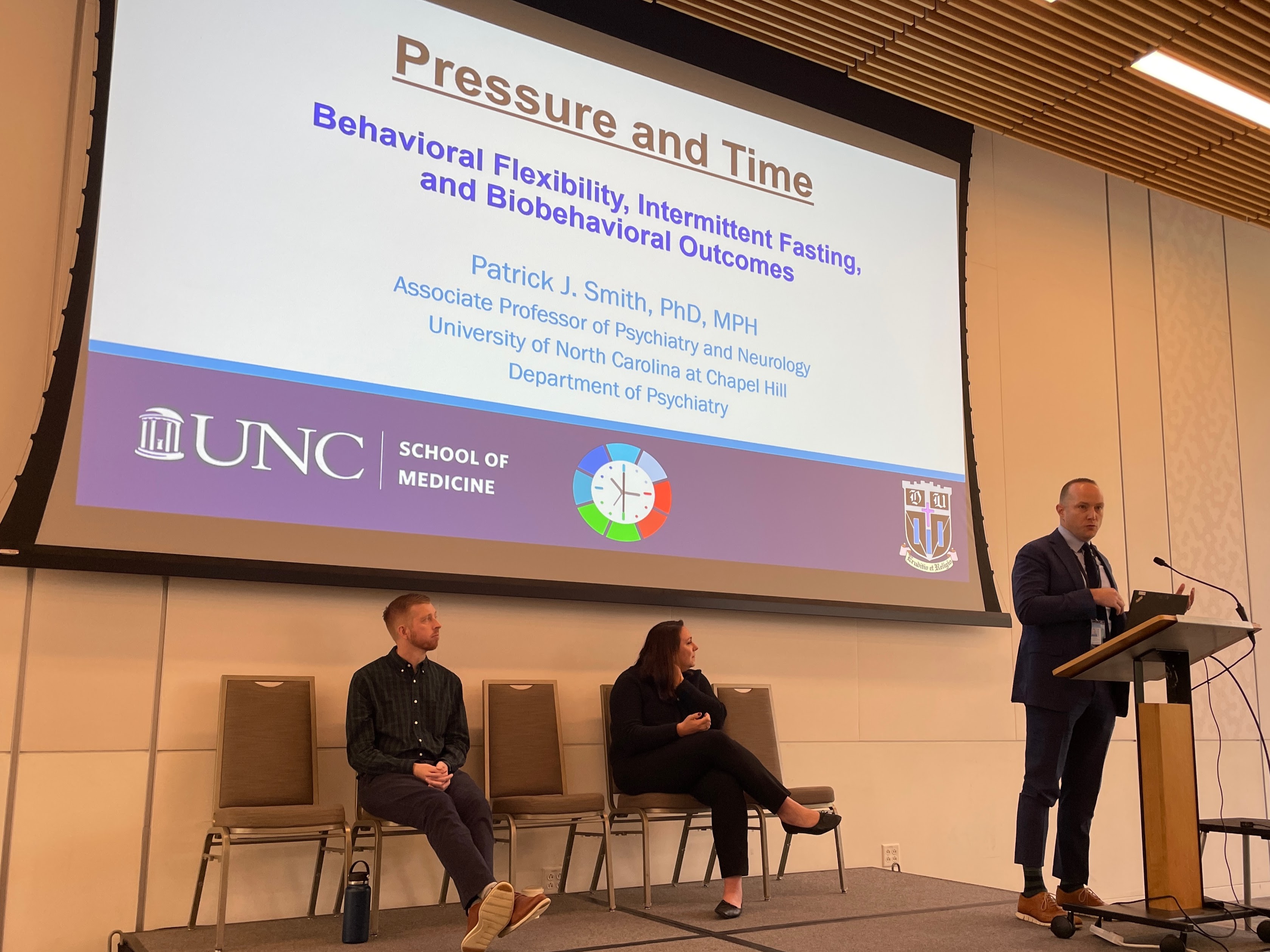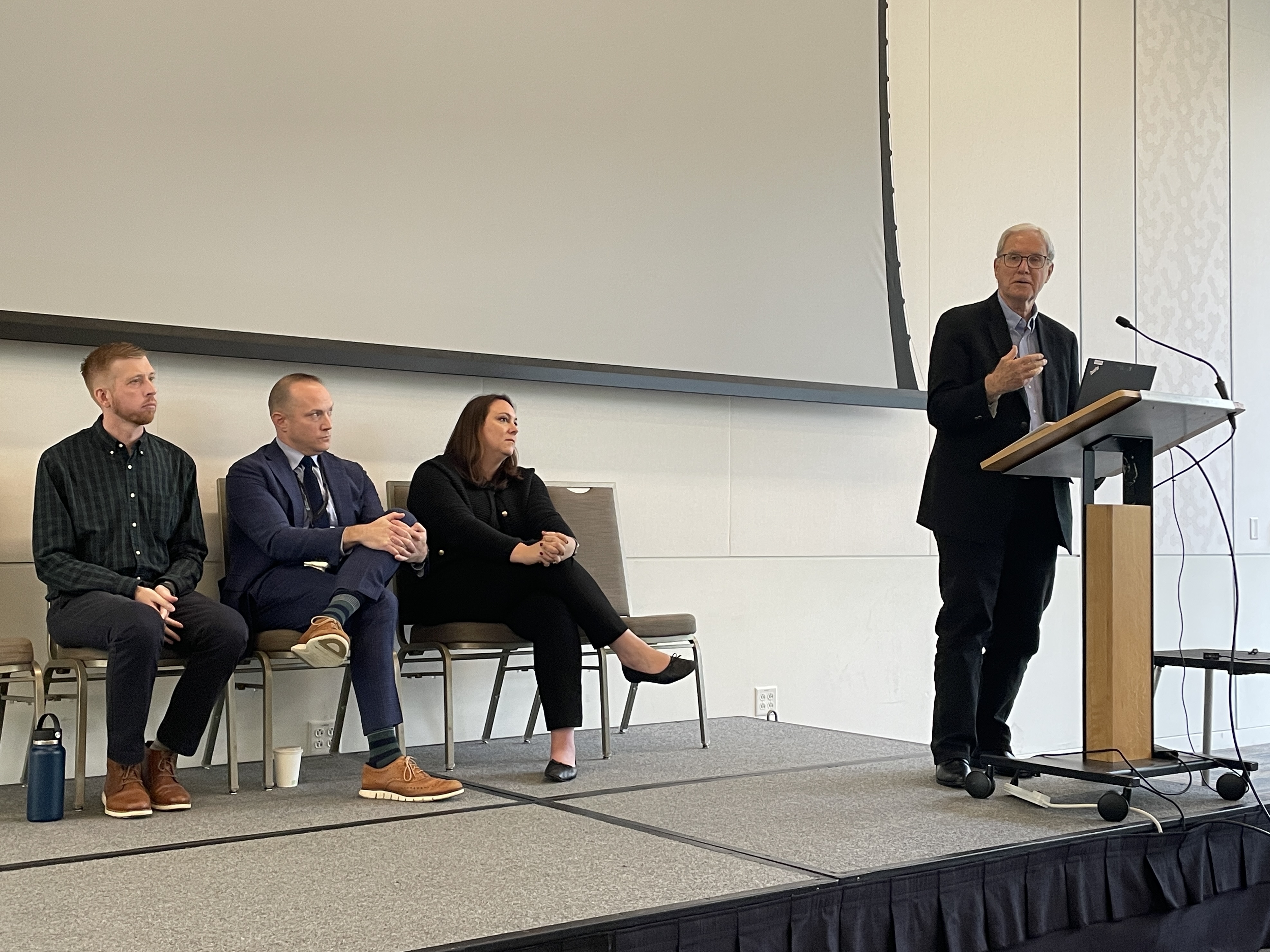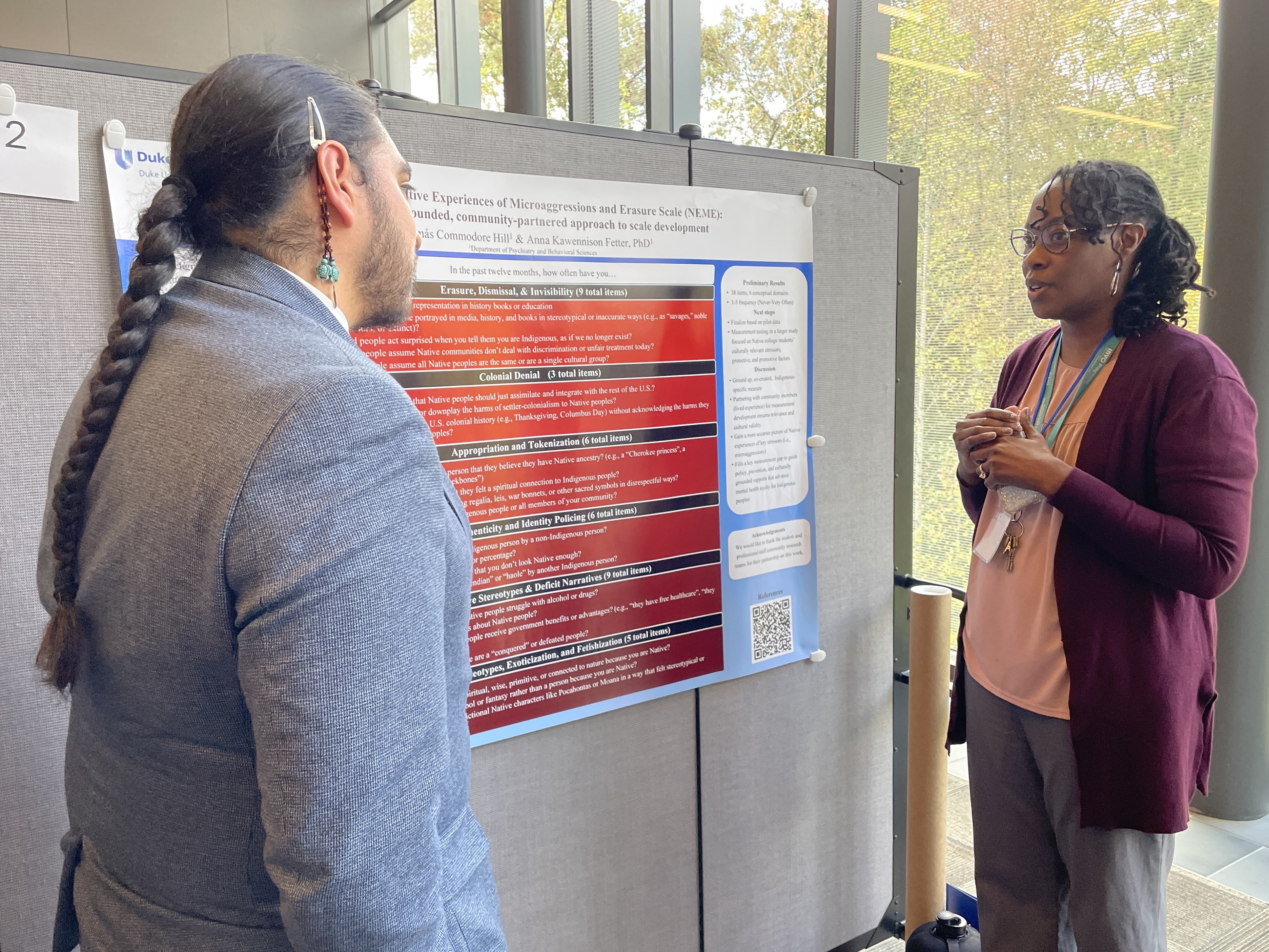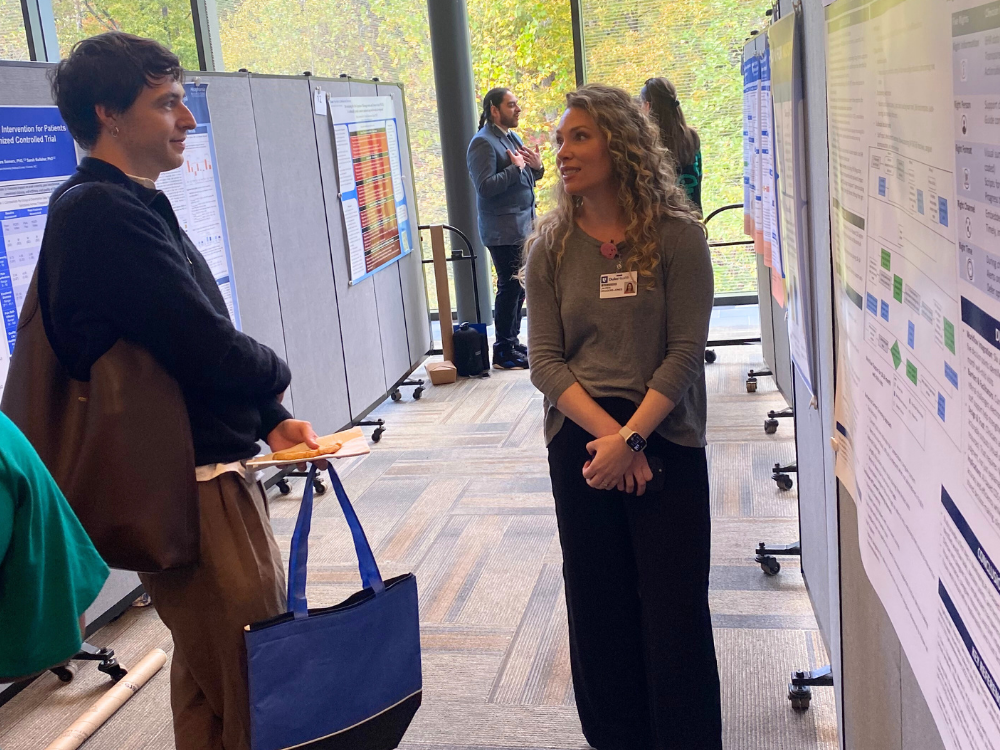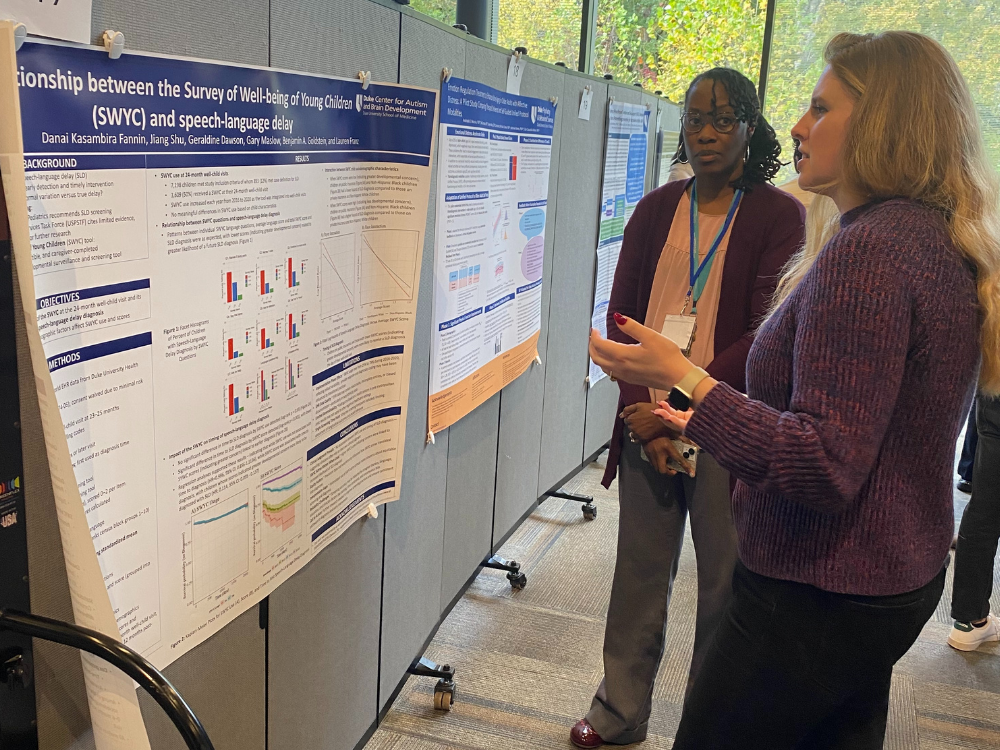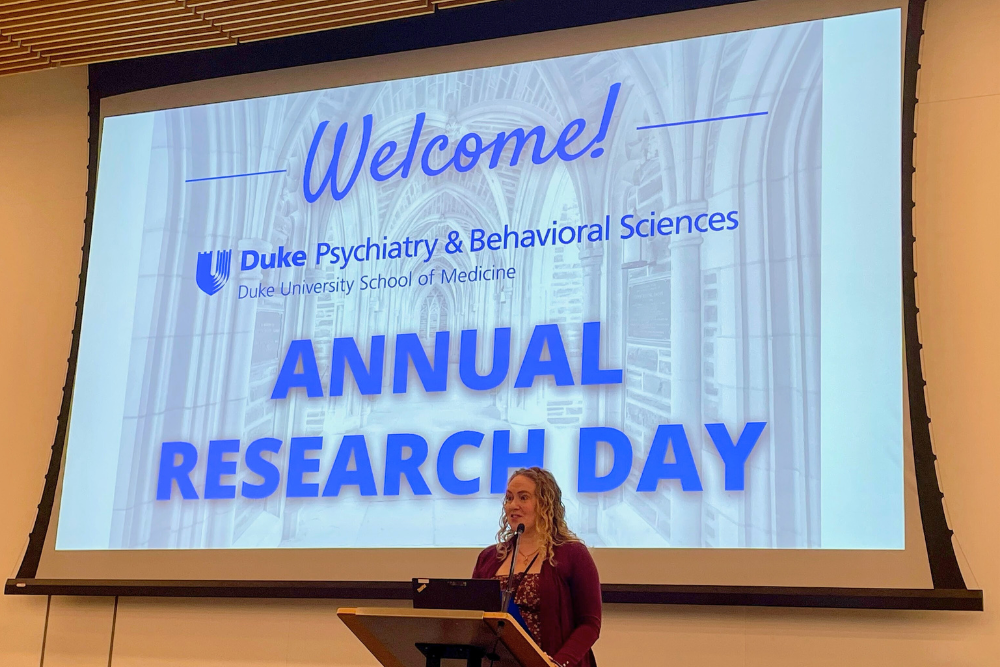
On October 30, more than 100 faculty, staff, and trainees from Duke Psychiatry & Behavioral Sciences gathered for a dynamic research retreat, hosted by the department’s clinical research unit at Duke University's Penn Pavilion.
The day began with opening remarks from Jonathan Posner, MD, vice chair of research and J. P. Gibbons Distinguished Professor of Psychiatry, who set the tone for a day of learning and camaraderie.
The keynote speaker, Ahmad Hariri, PhD, professor of psychology and neuroscience, presented groundbreaking research from the longitudinal Dunedin study on a novel brain biomarker linked to accelerated aging and its potential to predict disease risk and treatment response.
Hariri’s talk was followed by a compelling panel discussion on the role of artificial intelligence in psychiatric research. The “Machine Minds” panel, moderated by Nate Kimbrel, PhD, professor of psychiatry and behavioral sciences, included experts from across Duke University:
- Nrupen Bhavsar, PhD, associate professor of surgery and biostatistics and bioinformatics
- David Carlson, PhD, Yoh Family Associate Professor of Civil and Environmental Engineering
- Jessilyn Dunn, PhD, assistant professor of biomedical engineering and biostatistics and bioinformatics
- Matthew Engelhard, MD, PhD, assistant professor of biostatistics and bioinformatics
- Ben Goldstein, PhD, professor of biostatistics and bioinformatics and director of data science for Duke AI Health
After a brief break, the focus shifted to community health. Devon Noonan, PhD, MPH, FNP-BC, gave a talk on rural health equity, emphasizing the importance of research and engagement in underserved areas. Noonan is the associate dean for community engagement science and director of rural health equity at the Duke University School of Nursing.
The final session, “From Surviving to Thriving,” brought together Caroline Dorfman, PhD, associate professor of psychiatry and behavioral sciences at Duke; Cody Neshteruk, PhD, assistant professor of population health sciences and pediatrics at Duke; and Patrick Smith, PhD, MPH, associate professor of psychiatry and neurology at the University of North Carolina–Chapel Hill. Each of the speakers discussed their research developing and implementing emotional and behavioral interventions for managing chronic conditions. Frank Keefe, PhD, professor or psychiatry and behavioral sciences, provided comments after the brief talks and facilitated a Q&A.
The event concluded with closing remarks and poster awards, followed by a poster session and lunch, offering attendees a chance to network and explore emerging research. Poster session winners included:
- First place: Jessica Lunsford-Avery, PhD, “Feasibility and Acceptability of SHEETS: A New Digital Intervention for Enhancing Sleep Regularity in Adolescents”
- Second place: Taylor Jackson, “Latent Neighborhood Factors Are Associated with Neuropsychiatric Symptom Trajectories and Cortical Thickness after Trauma”
- Third place: Natalie Chau, “Initial Testing of a Mobile App Behavioral Pain Coping Intervention for Patients with Colorectal Cancer: Results of a Pilot Randomized Controlled Trial”
The retreat highlighted the intersection of neuroscience, technology, and community engagement, showcasing the department’s commitment to advancing mental health through interdisciplinary collaboration and innovative approaches to research.
We want to give special recognition to the team who organized the event: Jonathan Posner, MD; Maggie Sweitzer, PhD; Amanda Stemke, MPH, CCRP; Cameron Howes, CCRP; Rachel Kozink, MS, CCRP; Rachel Orr, CCRP; and Tuyen Phan, MBA.
Photos by Susan Gallagher and Evan Watson.
